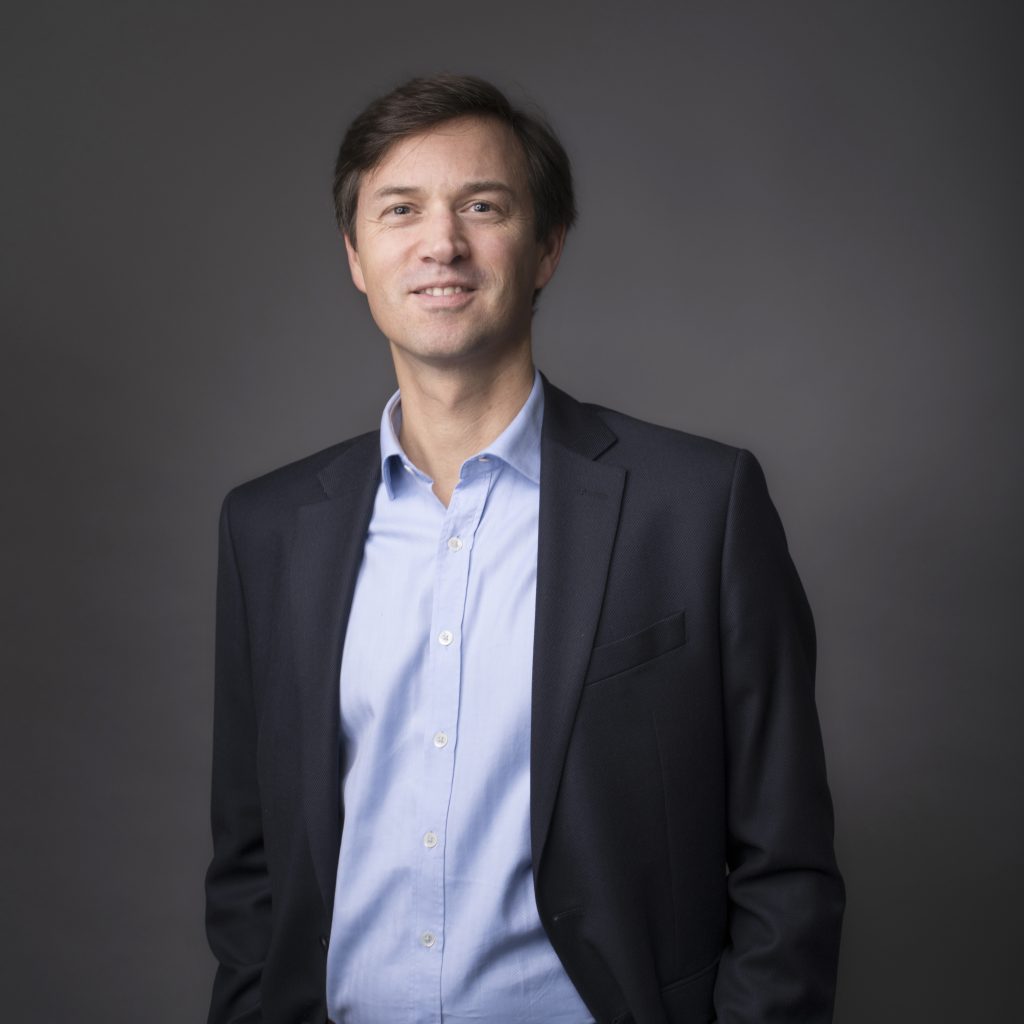Interview with Yann Gaston-Mathe, the founder of Iktos. Thanks to a solid experience in the pharmaceutical industry, both in information systems and in the functional area, he and his associates have developed a start-up offering an innovative solution based on artificial intelligence to accelerate the discovery of new therapeutic molecules.
[Emmanuel M] : Hello Yann, it’s with great pleasure that I begin this interview with you on your entrepreneurial adventure! Could you give us a brief summary of your career path?
Yann Gaston-Mathe] : Passionate about medicine and drugs, I spent most of my career in the pharmaceutical industry (Servier, Ipsen) and then as a consultant.
I then became interested in data science and its applications in healthcare, which allowed me to meet my two colleagues who had developed an Artificial Intelligence technology for the discovery of new molecules. Iktos was born in 2016.
[EM]: Can you share with us how Iktos was born, your role and that of your associates? What was the conclusion that pushed you into this adventure?
[YGM]: I met Nicolas and Quentin in a company, and while discussing together came the idea of using and developing Deep Learning technologies to create new molecules automatically, using natural language processing technologies.
They asked me to find a company because of my knowledge of industry and business. Quentin expertise in chemistry, CSO (Scientific Director) and Nicolas expertise in Artificial Intelligence, he is the CTO of the company.
[EM]: Can you tell us more about the technical bricks implemented on your platform?
[YGM]: Our platform implements databases in chemistry (Open), we have developed deep generative models, here the chemical language, they are capable of generating molecules.
The second brick uses predictive models (Machine Learning) which allows us to answer the question of whether the generated molecules correspond to the desired specifications. This is based on public or proprietary databases (of our customers).
A third brick allows learning by reinforcement, thus improving the whole process, and iterative ways of converging towards ideal candidates.
Our technologies allow us to propose potential molecules to chemists in a few hours.
We remain specialized in chemistry, with small molecules remaining the bulk of therapeutic research (about 50%).
[EM]: What are the flagship projects at the moment?
[YGM]: At the moment we are marketing our solution in the form of services or software. We currently have a good collaboration with Merk Darmstadt.
We have also developed a retro synthesis platform (freemium) that we have finished deploying at a major pharmaceutical customer.
EM]: Does the covid affect your development plan?
[YGM]: This pandemic had a limited impact. But especially on the business development aspects, even if the use of videoconferencing systems has become commonplace.
EM]: The principle of the interview on this site is to highlight French digital entrepreneurs, it is still a bit confidential, but what do you think of the principle?
[YGM] : As far as I’m concerned, it’s a good initiative in principle.
[EM] : Have you heard about the PlayFrance.Digital initiative? What is your position on digital sovereignty issues?
[YGM] : I don’t know if I have a clear and relevant position on this type of theme. Fundamentally, never manages to bring out giants, which explains why public markets are turning to bigger players.
The national dimension for countries like France is not the relevant dimension, given the European integration that opens us up to globalized trade.
[EM]: Is this an issue that may have an impact on your future choices?
[YGM] : No, because we are in a global market and we work with laboratories of all nationalities, and we do not host health data. We guarantee our customers the security of their data.
In the context of our activities, it is not a concern.
[EM]: What are the concrete impacts of Privacy Shield invalidation on your business?
[YGM] : We do not manage personal data, therefore no impact.
[EM]: Do you think that the pharmaceutical industry, in all of its components, has fully grasped the consequences of this decision?
[YGM] : It’s a subject that I haven’t been following for a long time, so I don’t have a strong opinion on it.
[EM]: One last point on the subject of digital sovereignty, what do you think of the Digital Act project led by European Commissioner Thierry Breton? And of one of the consequences, which is the Data Governance Act?
[YGM] : I am not yet interested in the subject.
[EM]: Coming back to Iktos, what would be your vision and that of your associates on the future of Iktos, do you have other projects? Still in Life Sciences ?
[YGM] : We wish to continue our development as a solution provider to improve the discovery of new therapeutic solutions in collaboration with the healthcare industry.
In our projects, we wish to integrate the research of new molecules by our platform with an automation of the chemical synthesis.
[EM]: We are coming to the end of our interview, what would be your conclusion?
[YGM] : At my level, in relation to my company’s activities and its stage of development, sovereignty issues are not yet very present. So I do not yet have a well asserted opinion, even if we can regret the lack of French industrial giants, in the digital sector but also in the pharmaceutical industry…




